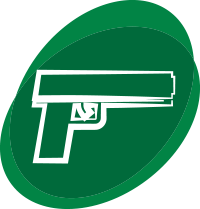Forensic practitioners determine whether two marks were generated by the same tool by observing the 2D images of the marks using a comparison microscope and deciding whether the “surface contours of two toolmarks are in sufficient agreement” based on the examiner’s subjective opinion that another tool could not have made the marks. Objective measures produce consistent results, have transparent processes, and have less uncertainty in conclusions. This study proposes a novel algorithm (an objective method) for forensic toolmark comparisons that can compare marks made at different angles and directions, and provide a measure of uncertainty.
Forensic Toolmark Comparisons

Conference/Workshop:
Joint Statistical Meetings
Joint Statistical Meetings
Published: 2023
Primary Author: Maria Cuellar
Secondary Authors: Heike Hofmann, Sheng Gao, Shane Jensen
Type: Presentation Slides
Research Area: Firearms and Toolmarks
Related Resources
Effect of Subclass Characteristics on Congruent Matching Cells (CMC) Algorithm
This presentation is a continuation of subclass characteristics present on consecutively manufactured breech face inserts. The objective is to assess manufacturing methods similar to those used by firearm manufacturers. It…
Diagnostic Tools for Automatic Cartridge Case Comparisons
The following was presented at the Association of Firearm and Tool Mark Examiners (AFTE) 2023, Austin, Texas, May 21-26, 2023. Copyright 2023, The Authors. Posted with permission of CSAFE.
A Study in Reproducibility: The Congruent Matching Cells Algorithm and cmcR Package
Scientific research is driven by our ability to use methods, procedures, and materials from previous studies and further research by adding to it. As the need for computationally-intensive methods to…
CSAFE Project Update & ASCLD FRC Collaboration
This presentation highlighted CSAFE’s collaboration with the ASCLD FRC Collaboration Hub.

